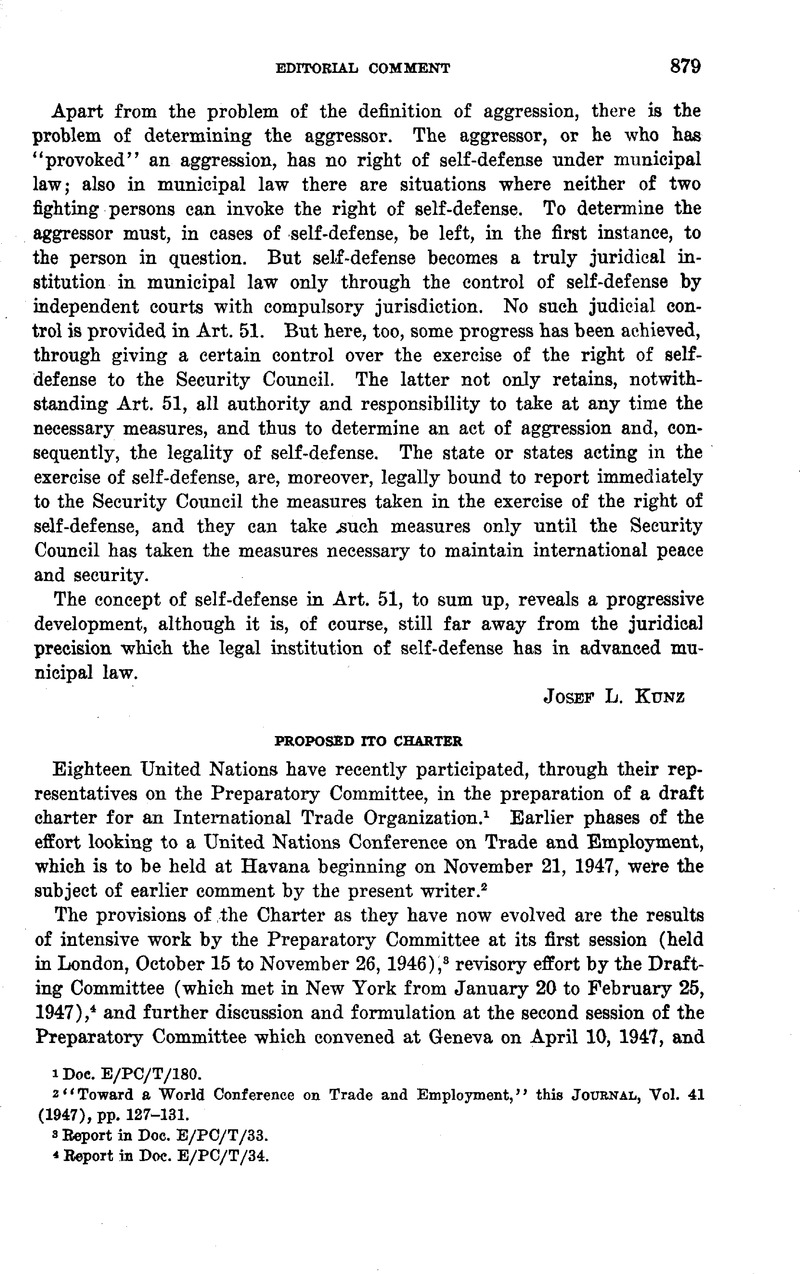
1 Doc. E/PC/T/180.
2 “Toward a World Conference on Trade and Employment,” this Journal, Vol. 4 (1947), pp. 127-131.
3 Report in Doc. E/PC/T/33.
4 Report in Doc. E/PC/T/34.
5 Members of the Preparatory Committee represented at the second session were: Australia, Belgium, Luxembourg, Brazil, Canada, Chile, China, Cuba, Czechoslovakia, France, India, Lebanon, The Netherlands, New Zealand, Norway, the Union of South Africa, the United States and the United Kingdom. The Soviet Union, a member of the Preparatory Committee as created by the United Nations Economic and Social Council, was not represented.
6 Art. 8.
7 Art. 11.
8 Art. 23.
9 Art. 24.
10 Art, 30.
11 Art. 31.
12 Art. 45. Art. 47 specifies the obligation of members to take measures, by legislation or otherwise, to ensure that publie and private enterprises do not engage in practices having specified effects.
13 Art. 52. See “The International Trade Organization—How Will It Work?” United States Department of State Publication 2597 (Commercial Policy Series 92), p. 6.
14 Art. 64.
15 Art. 65.
16 International Trade Organisation. Hearings before the Committee on Finance, United States Senate, Eightieth Cong., First Session on Trade Agreements System and Proposed International Trade Organisation Charter, Pt. 1, p. 20 (hereinafter cited as Hearings).
17 Art. 68 of the Charter also envisages membership for separate customs territories not responsible for the formal conduct of their diplomatic relations. The Havana Conference is to determine conditions of application of Charter provisions to trust territories. The effect upon membership in the ITO of a member ‘s exclusion from the United Nations Organization also remains to be determined.
18 Art 87.
19 On the intended meaning of the part of the Charter relative to this subject matter (as provisions were formulated prior to the Geneva discussions) see the testimony of Leroy Stinebower in Hearings, Vol. I, p. 566. By Art. 92 of the Charter, nothing in Chapter VIII thereof is to exclude procedures provided for in the Charter for consultation and settlement of differences arising out of its operation.
20 Art. 93. There is in the same version a provision which envisages suspension (after full consultation) of application of Charter provisions for any member if a substantial part of the letter’s foreign trade is with a non-mêmber; withdrawal of the member, in case there is no satisfactory adjustment, may follow.
21 Art. 97.
22 Address of Under Secretary Clayton broadcast from Paris, reported in The Washington Post, Sept. 11, 1947, p. 1.
23 Hearings, Vol. I, p. 3 (testimony of Mr. Clayton).